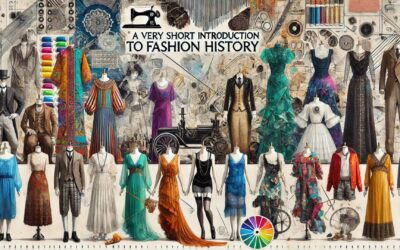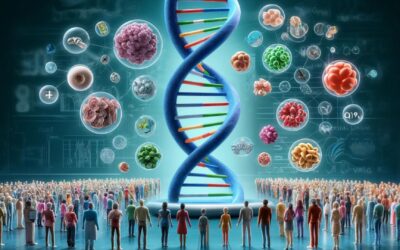Picture this: a bolt of lightning splits the sky, unleashed by an angry Zeus. A cunning hero named Odysseus outwits a one-eyed Cyclops. The beautiful Helen of Troy sparks a ten-year war. These aren’t just imaginative tales – they’re the fabric of Classical mythology, stories that have echoed through the ages.
Myths: More Than Just Stories
You might think myths are pure fiction, but to the ancient Greeks and Romans, they held deep meaning. These stories explained the world around them, from the changing seasons to the wrath of the sea. They instilled values, gave history to their civilization, and offered moral guidance.
Meet the Olympians
Think of the Olympians as the original dysfunctional family drama! You’ve got Zeus, king of the gods and his signature weapon, the thunderbolt. Hera, his jealous wife. Poseidon ruling the seas, and Hades lurking in the underworld. Their children, like wisdom-gifted Athena and fiery Ares, god of war, bring their own chaos to the table.
Heroes, Monsters, & Epic Journeys
Myths don’t just revolve around gods. Brave heroes like Hercules, known for his 12 labors, and the tragic figure of Achilles from the Trojan War, demonstrate both virtue and human weaknesses. And where there are heroes, there are monsters: think the snake-haired Medusa, the terrifying Minotaur, or the multi-headed Hydra.
From Ancient Origins to Modern Life
You might be surprised by how deeply these myths are woven into our world. Their influence lives on in our language (‘titanic’ strength, an ‘Achilles heel’), literature, art, and even in the names of the planets! We still tackle epic journeys, wrestle with moral dilemmas, and seek explanations for the mysteries of the universe, just as the people of ancient times did.
Why Does It Matter?
Myths aren’t just relics of the past; they give us a lens for understanding ourselves, our history, and even our modern storytelling. Whether you admire the bravery of Perseus or marvel at Aphrodite’s beauty, you’ll unlock a world of imagination and explore timeless themes of love, loss, power, and the battle between good and evil.
Action Point
Want to dive deeper into this world of gods and heroes?
- Discover books retelling classic myths or look up free online resources
- Dive into Greek and Roman history to understand the context of these tales
- Look for artistic representations of myth – from ancient sculptures to modern films
Embrace the richness of Classical mythology and open a portal into a world of epic proportions!
Why Should You Care?
- Understanding Our Roots: Classical mythology forms a basis for Western literature, art, and thought. Knowing these stories means recognizing references and themes that pop up over and over.
- Human Universals: These myths, although ancient, tackle timeless issues we still grapple with – love, jealousy, fear, morality. They connect us to humanity across thousands of years.
- Stimulating Imagination: Gods who squabble like siblings, monsters that haunt our nightmares, impossible quests – these tales fuel creativity and make us ask ‘what if’?
- It’s Just Fun! Who doesn’t love dramatic conflicts, heroic journeys, and epic battles with fantastical creatures? There’s a pure entertainment factor to be had!
Key Takeaways
- Myths weren’t just entertainment to Greeks and Romans. They explained the world, instilled values, and offered frameworks for life.
- The Olympian gods (Zeus, Hera, Poseidon, etc.) are central, embodying both human traits and power over aspects of nature.
- Heroes weren’t flawless; their victories and downfalls offer a complex exploration of what it means to be human.
- Monsters and creatures embody challenges and threats both outside and within ourselves.
- Classical mythology’s influence persists subtly in everything from language to modern pop culture.
Keywords & Definitions
- Classical Mythology: Body of myths/legends from ancient Greek and Roman culture.
- Myths: Traditional stories with cultural significance; often involve gods, heroes, and explain natural phenomena.
- Legends: May have a grain of historical truth, while myths are more symbolic than factual.
- Olympians: The 12 main gods residing on Mount Olympus (Zeus, Hera, etc.).
- Moral Guidance: Myths often illustrate right and wrong behavior, with consequences for actions.
- Virtue: Positive qualities valued within a culture, like courage or wisdom, frequently demonstrated by heroes.
- Epic Journeys: Long, difficult quests with dangers and rewards, a trope seen in modern movies too.
- Tragic Figure: A hero with a fatal flaw, whose choices may contribute to their eventual downfall.
- Timeless Themes: Universal aspects of the human experience transcending the confines of any single culture or era.
- Influence: How one idea or culture can continue to shape the creation of art, literature, and understanding for centuries to come.
Frequently Asked Questions
- Didn’t Greeks/Romans worship these gods? Yes! While we treat them as stories, this was very much their religion.
- Is Greek mythology older than Roman? Yes, but heavily overlaps. Romans adopted many gods with name changes (Zeus=Jupiter).
- What other mythologies exist? Each culture has its own fascinating mythologies; Norse, Egyptian, and those of Indigenous cultures just to name a few!
Myth Buster
- Myth: Myths are silly, childish tales.
- Reality: They grapple with profound themes, influencing philosophy, science, and morality through history. Dismissing them ignores their deep cultural influence.
Let’s Talk!
- Which figure from Classical mythology most intrigues you, and why?
- Can you name a recent film/book that seems ‘inspired’ by a classic myth? Explain how!
- Should classic myths be taught in schools? Why or why not?
Let’s get the conversation going in the comments below!










0 Comments